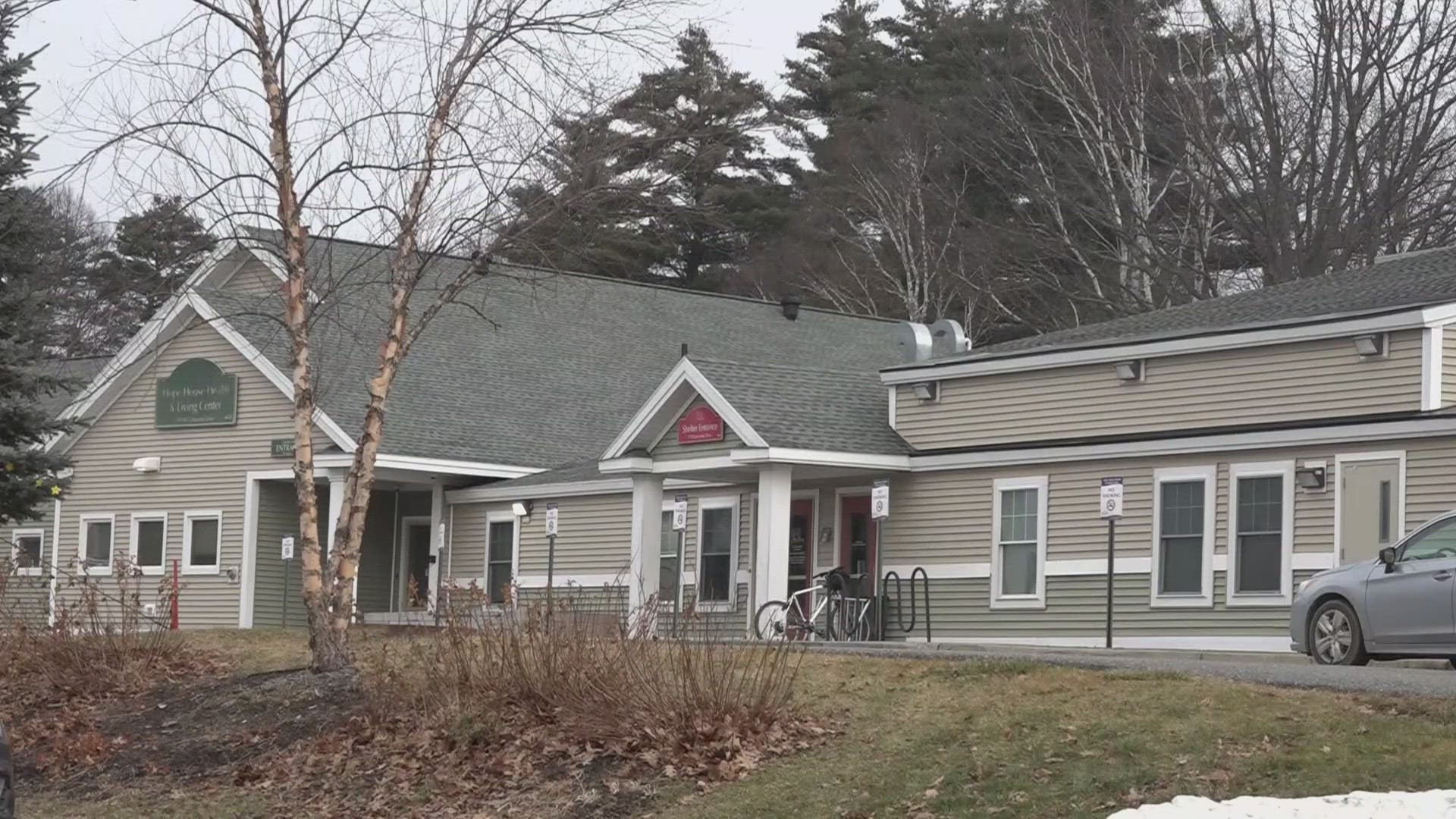BANGOR, Maine — Maine's second largest low-barrier homeless shelter, Hope House Health and Living Center in Bangor, is still searching for a partner to run the shelter.
The CEO and President of Penobscot Community Health Care (PCHC), which owns the Hope House, said Lori Dwyer said they will be forced to close the shelter if it does not find a new owner by next October.
Other organizations that support the Greater Bangor Area's unhoused community said the potential closing of the Hope House could be detrimental for the city.
Dwyer said the lack of funding, the housing crisis, and other roadblocks makes it ''untenable continue to underwrite the losses associated with providing low barrier emergency shelter services."
The Hope House currently has anywhere from 50 to 64 beds available.
Director of Bangor Area Homeless Shelter (BAHS) Boyd Kronholm said he runs a dry shelter for sober unhoused people.
Kronholm said BAHS is able to properly function because the Hope House accepts unhoused people who are still actively using drugs, something that his dry shelter can't do.
He said he works with the Hope House regularly. Although BAHS functions as a warming center in the winter months from 6 p.m. to 5:30 a.m. that is available for all unhoused people, regardless of if they are sober or not, Kronholm said his day area only holds 38 to 40 people.
He said unhoused people using the warming center in the winter months are not able to bring in sleeping bags, but they can sit in the day area as long as space is available during warming center hours. Kronholm said his warming center is always full, and he said other faith-based warming centers in the area are also full during the winter months.
According to Kronholm, if the Hope House closes, BAHS, as well as other shelters in the area, likely won't be able to fill the gap and would be unable to provide shelter for some 60 people who would be left outside daily if the organization is forced to close its doors.
"It would be horrendous," Kronholm said. "Homelessness is like a symptom, there's different causes. To solve homelessness is one issue, but the issue to keep the Hope House open is funding."
Kronholm said with inflation and steady increases in minimum wage—even his shelter struggles to manage operation cost.
He said there is a struggle to offer competitive pay, stating that the lack of financial funding from state Legislature makes it hard for shelters to keep quality workers.
"The amount that the state contributes to these homeless shelters has not gone up. It's been the same amount. I've been here seven years, and it's not gone up more than a few pennies or a few dollars," Kronholm said. "They've done a couple of one-time fundings where they've put in 10 million, I think last year, and then five million this year. And that breaks down to each of the shelters, depending on size, a couple of hundred thousand. And that's a band aid, but what are we going to do next year?"
Executive Director of Fresh Start Sober Living Scott Pardy said his nonprofit houses people recovering from drug and alcohol addiction. When people fail out of Fresh Start—they often turn to the Hope House for shelter.
Pardy said the nonprofit purchased a new multi-family house that will be available on Jan. 9, bumping its total housing capacity up from providing space for 114 people to 120.
"Everybody wants it to just kind of go away," Pardy. "When I was growing up you didn't see homeless people on the street in Bangor. You just didn't see it. People took care of people."
Kronholm and Pardy said Bangor is a service city, explaining that it offers mental health services like Acadia Hospital, day-use clinics for mental health and substance abuse disorders, and shelters and housing for experiencing homelessness.
Kronholm said Bangor has become a place where unhoused people who live in cities that don't have shelters are often dropped off and left.
"What happens, to be quite frank with you, is that these other local communities have no homeless response system," Kronholm said. "So, their homeless response system is 'We'll drive them to Bangor, put them in Hope House or the Bangor Area Shelter,' and then it becomes Hope House and Bangor Area Shelter's issue and the City of Bangor's issue on what to do with them."
Kronholm said COVID relief funds were helpful, but more regular support is needed to keep shelter doors open. He said BAHS depends mostly on private funding, which requires a lot of fundraising, but he said many shelters don't have access to private funds, leaving them to rely of support from the state.
The Hope House received three million in American Rescue Plan Act Funding, but in a statement, Dwyer said PCHC loss critical funding sources like revenue generated by the 340B program for community health centers.
Dwyer said operating cost needed to support the Hope House has "skyrocketed," and she said the organization is expected to lose roughly $600,000 related in 2023 to operating the shelter.
Kronholm said state Legislature needs to understand how imperative it is for the Hope House to remain open.
"Here's a shelter whose one of the bigger shelters in the state getting ready to shut down," Kronholm said. "Homelessness is running rampant in some of the service cities, you know, Lewiston, Bangor, Augusta, and Portland especially, and here's one in the heart of that in Bangor that's getting ready to shut down where we need more services. Now we're going to have less services because of a funding gap."

